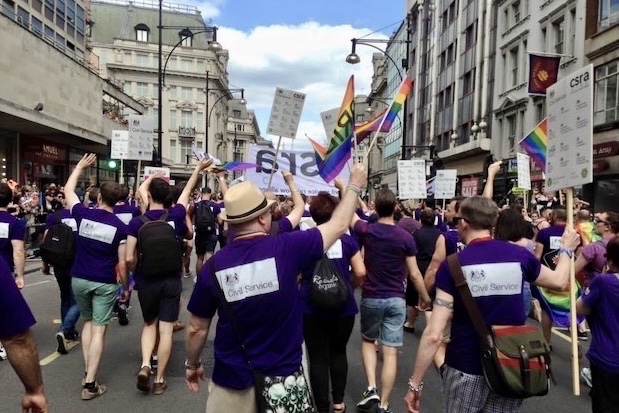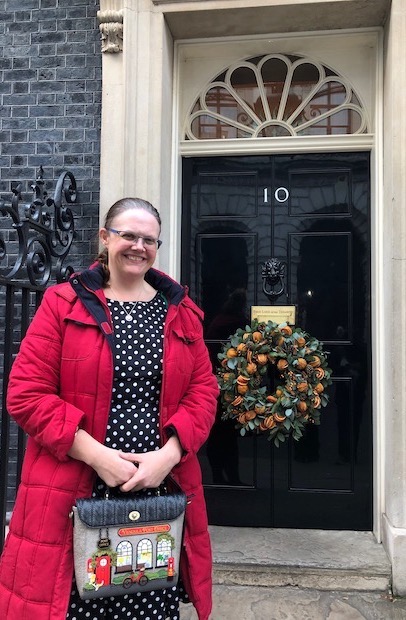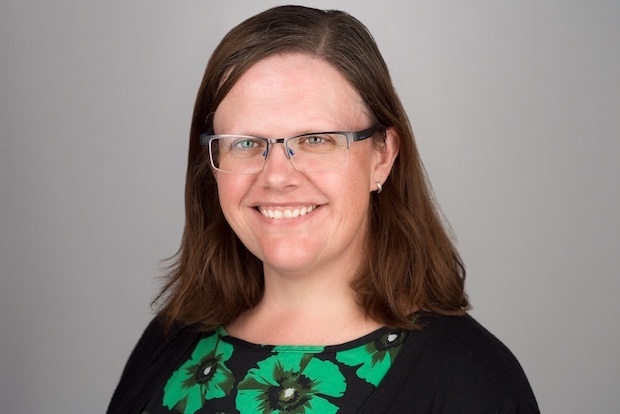
Cabinet Office Diversity and Inclusion Manager, Keela Shackell-Smith offers tips on how to be a strong ally at work and support your LGBT+ colleagues.
I’m a trans ally, ace ally, lesbian ally, gay ally, intersex ally, pan ally….I’m an LGBT+ ally. I’m in a same sex marriage, and I recognise that although I am classified in the acronym of LGBT+, I also need to be an ally of everyone under the LGBT+ banner - (lesbian, gay, bi, trans, queer, questioning, intersex, allies, asexual, pan etc).
I know what it’s like to not be ‘out’ at work, and it’s draining and looms over your head like a dark cloud. I can’t tell you how it makes LGBT+ people feel included when they walk around an office and see people wearing rainbow or trans flag lanyards, or when they see colleagues have the statement ‘proud to be a LGBT+ ally’ in email signatures.

When I first came out in the workplace, there wasn’t LGBT+ allies training and a network was just forming. We are in such a different place now, but I recognise that we still have some way to go. I speak with colleagues who are non binary who are concerned about sharing their pronouns, or colleagues who are trans and concerned about the impact of lockdown on them.
Knowledge gaps
LGBT+ allies training has been developed by our Fast Stream and I’m one of the trainers. The biggest thing I have learnt is that I had big gaps in my knowledge of LGBT+ rights in history. I have been taken aback that it’s quite recent history. For example, it wasn’t that long ago that same sex attraction was labelled as a mental health condition, and the reason I knew nothing about sexual orientation when I was at school, was because I was under the umbrella of Section 28.
Eyes opened
I have also had my eyes opened to terms I hadn’t heard of before. During the training, we run a quiz on terms such as passing, gender dysphoria, transitioning, deadnaming, misgendering to see if people can define them. We talk about how distressing gender dysphoria can be and the impact of deadnaming or misgendering someone who has told you that their pronoun is ‘they’ but you call them ‘he or she.’

What I have learnt is that I need to do better. I need to actively listen to the language others use. If a colleague is using neutral language to describe their partner, mirror that. I now share my pronouns in my email signature and introduce myself in meetings/presentations with my pronouns as a signifying to non binary colleagues that I get pronouns. If you tell me you use the pronoun ‘they’, I will use that and not misgender you.
I’d urge everyone to engage with LGBT+ Allies training if it’s offered in your Department. Or become a LGBT Allies trainer and use the resources and script to deliver sessions in your Department.
Don’t discount yourself if you identify as LGBT+, we need to be allies to each other. If the training isn’t currently offered in your Department, I’d invite you to:
- Research the history of LGBT+ rights
- Don’t hide away from things you don’t understand. If you are unsure what non binary means, or understand that intersex is a natural variation and based on chromosomes, do your research.
- Understand the difference between gender identity, gender expression, sex and sexual orientation.
- Be a visible ally. Wear a rainbow, trans flag, intersex flag or non binary lanyard. Write in your email signature that you’re proud to be a LGBT+ ally and link to your Department LGBT+ Network.
The Civil Service LGBT+ Network and a:gender have written some brilliant guides that I’d encourage you to read. I’ve joined both networks:
- Intersex information sheet - by a:gender
- Asexuality factsheet and Bisexuality factsheet by the Civil Service LGBT+ Network
For me, It's been amazing to see progress for LGBT+ Inclusion in virtually every walk of life whether you're a politician, pop star or civil servant, but I believe there is still some way to go.
Boxer Nicola Adams made Strictly history by becoming the first celebrity to be part of a same-sex pairing. However, perhaps the biggest progress will be when a same-sex pairing on a TV hit show is no big deal, and not making any headlines, but simply the norm.
What do you think?

2 comments
Comment by Heeral posted on
I thought your LGBT+ allies training was great, and so insightful!
Comment by Gavin Thomas posted on
Thank you Keela for a promoting the importance of being an LGBT+ Ally.
I attended the Stonewall Straight Allies training course in 2017 because as a person of colour, I have experienced discrimination for much of my life, fully understood the impact this can have on your self esteem and general wellbeing, and wanted to be able to make a difference.
Having been in the Civil Service over 30 years, I would agree that we have seen a significant change in attitude towards those with protected characteristics, but there is still much more that needs to be done.
I would also agree that there has been a major change within society and we have seen a number of television programmes look to be more inclusive. Not only in 2020 did we see Nicola Adams create a first in Stricty, but also the former member of Steps Ian H Watkins create history in Dancing on Ice.
Unfortunately, we are still observing unprovoked attacks on those from the LGBT+ community, and so there is still more that we need to do to educate our future generation.
For me, we are still a long way to go before we can truly say that being LGBT+ is the norm!